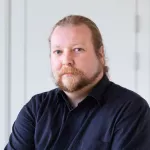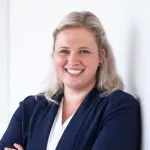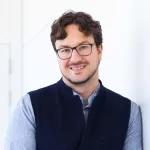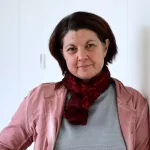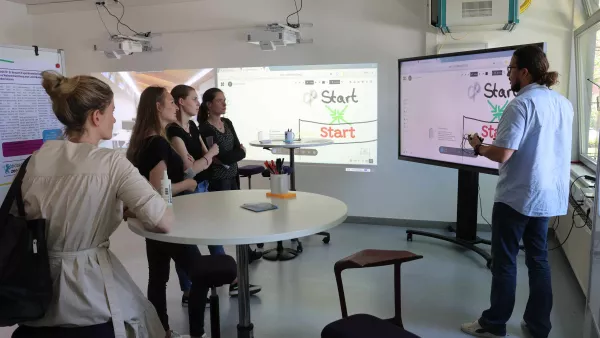Profile
Offers of the university didactics
The University Didactics team works on various teaching development formats. Our focus is on the introductory phase of studies, digitally enhanced teaching and expanding the infrastructure for better teaching and learning. We support lecturers in digitizing their teaching as far as desired. Our services for lecturers, staff and students also include advice, support services, workshops of a different kind, the provision of tools and further training. For example, we can help you with all questions relating to e-learning, whether it's how to use Moodle, activating methods via smartphone or holding webinars.
If you have any problems or queries about e-learning or our e-learning tools, you can contact us via the central e-mail address elearning@rwu.de. We will also be happy to advise you individually on your questions and challenges. Simply contact us at the following e-mail address: hochschuldidaktik@rwu.de.
Wer wir sind
Das Team der Hochschuldidaktik arbeitet an verschiedenen Formaten der Lehrentwicklung. Unsere Schwerpunkte sind die Studieneingangsphase, digital gestärkte Lehre und Erweiterung der Infrastruktur für besseres Lehren und Lernen. Wir unterstützen Lehrenden dabei, Ihre Lehre, so weit gewünscht, zu digitalisieren. Auch zählen wir Beratung, Unterstützungsangebote, Werkstätten der anderen Art, Tool-Bereitstellung und Fortbildungen zu unseren Services für Lehrende, Mitarbeitende und Studierende. So helfen wir Ihnen z.B. bei allen Fragen rund um das Thema E-Learning, sei es der Umgang mit Moodle, aktivierende Methoden via Smartphone oder der Durchführung von Webinaren.
Für Probleme und Anfragen zum Thema E-Learning oder unseren E-Learning Tools können Sie uns gerne über die zentrale E-Mail Adresse elearning@rwu.de erreichen. Darüber hinaus beraten wir Sie gerne individuell zu Ihren Fragen und Herausforderungen. Nehmen Sie über folgende E-Mail Adresse einfach Kontakt zu uns auf: hochschuldidaktik@rwu.de.
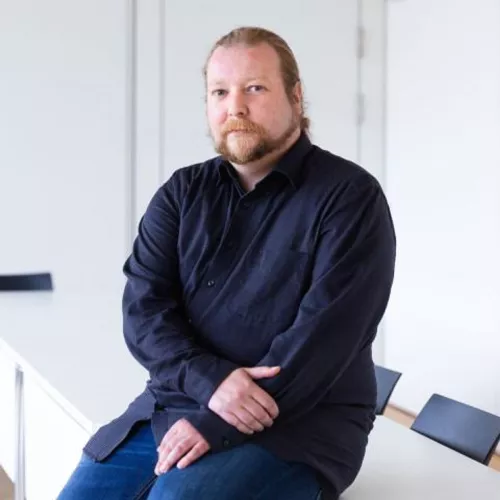
Didactics & e-learning workshop
Tuesdays
13:00 p.m. to 15:00 p.m.
K 002 LearningLab in the Didactics Center
Counseling is also possible via Moodle.
Further information can be found in the course Hochschuldidaktik*LIVE* in Moodle.
In the Didactics & E-Learning Workshop, teaching staff and employees are invited to work on their didactic questions and technical implementation with e-learning tools. Our e-learning expert Martin Preußentanz will support you with problems and provide advice and assistance.
However, the workshop is not just for solving problems. Over time, the aim is to create a co-working atmosphere: Thus, the Didactics & E-Learning Workshop offers space and opportunity to work together with others on the further development of your teaching. You can also expect inspiring discussions and a stimulating atmosphere.
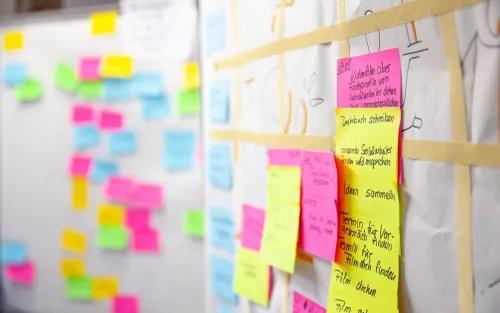
Further services
- You can find information about our e-learning tools in our Moodle course "Overview of the digital tools at RWU".
- New webinars take place every week - information can be found under "Dates" and in our Moodle course University Didactics*LIVE*.
- To make things easier for you as a lecturer, we have compiled information for students about our e-learning tools. So you don't have to teach your students everything yourself > Information for students or For internationals.
- We can help you to record your course and are happy to take over the recording with existing technology. Camtasia screencasts or split-screen recordings with an additional camcorder are possible. We are also happy to advise you on didactic questions. The recordings created are ideal for use in just-in-time teaching settings, flipped classroom scenarios or video coaching.
Dates
All eventsDownloads
- Fortbildungsflyer Wintersemester 2024/25 (PDF, 492.91 KB)Hochschuldidaktik Fortbildungsflyer für das Wintersemester 2024/25
News
News of this institution
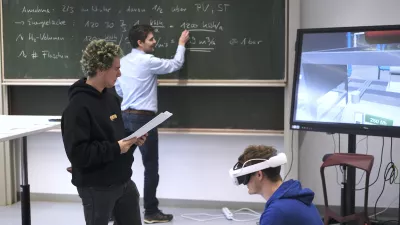
Immersive Learning Lab
Virtual electrolysis plant in action for the first time
Students immerse themselves in VR and work with and on a virtual electrolysis plant - a joint project.
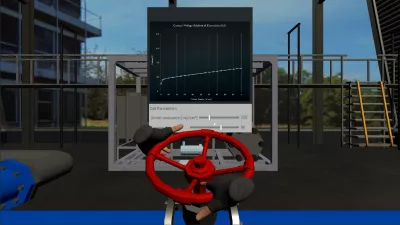
Digital transformation
Explore electrolysis plants in VR
Stifterverband and MWK fund innovative RWU project with €50,000 that enables students to research electrolysis plants in virtual reality (VR).
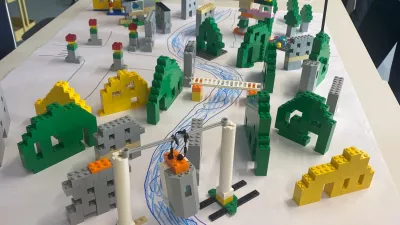
University didactics
LEGO Scrum Event
As part of a training course on the agile method SCRUM, students of the master's program TMO found themselves in the LearningLab. The goal: to build a Lego city together.
Teaching at RWU
Further training in university didactics
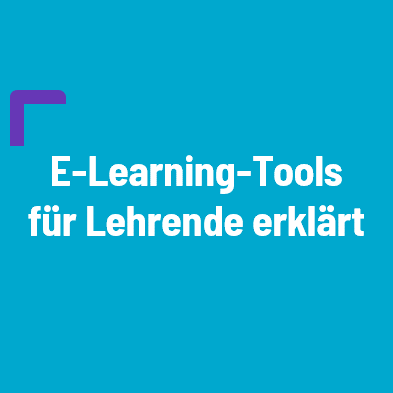 For new teachers and staff at RWU, we offer numerous must-have basic courses and in-depth workshops every semester.
For new teachers and staff at RWU, we offer numerous must-have basic courses and in-depth workshops every semester.
Together with the PH, we also offer a comprehensive training program during the semester. The training courses take place either via BBB or in our Didactics Center in building K. Of course, we can also offer you internal team training courses - just contact us.
You can find a current flyer with a list of the individual training dates at the bottom of the profile page.
University Didactics RWU Certificate
Anyone who attends further training courses in the field of university didactics amounting to 40 work units (AE) can apply for a "University Didactics RWU Certificate", which can be claimed when applying for performance bonuses. In order to obtain the certificate, it is possible to attend further training courses from the following subject blocks:
Subject block
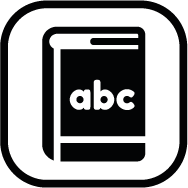 | 1: BasicIntroductory course in higher education didactics for newly appointed professors or basic course in higher education didactics, advanced course and in-depth workshop for lecturers. Max. 24 AE
|
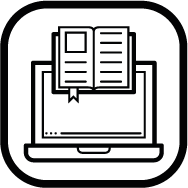 | 2: eLearning/mediaSeminars or lectures on: teaching and learning concepts, teaching methods, communication, presentation and media. Max. 20 AE
|
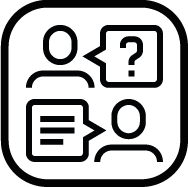 | 3: CommunicationSeminars or lectures on: advising students, assessment and evaluation, legal principles, improvement of framework conditions, curriculum and degree program development. Max. 20 AE
|
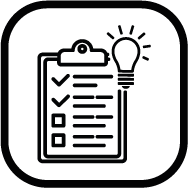 | 4: Project orientationProjects (implementation of innovative higher education didactic projects) and individual activities such as participation in coaching sessions, contributions to higher education didactic conferences, teaching observations, didactic exchange, etc. Max. 20 AE
|
These blocks and the number of possible AE are closely aligned with the Baden-Württemberg Certificate for University Didactics and are therefore recognized by the Office for University Didactics (GHD) for the acquisition of the institution's more comprehensive Baden-Württemberg Certificate for University Didactics. Optionally, focus areas can be set in areas such as e-learning and project-oriented teaching, which are recognized by the GHD and mentioned in the Baden-Württemberg certificate.
Responsible for the concept idea:
Prof. Dr. Jörg Wendorff, M.A. Irena Schreyer and M.A. Jochen Weissenrieder (in consultation with Prorector Prof. Dr. Theresia Simon)
Playbook of online teaching
Discover a variety of methods for every occasion in our wiki METHODEN-BAR. The online teaching playbook is your information platform for all aspects of teaching, learning and didactics. It is embedded in the local knowledge database and invites you to browse and linger. Here you will not only find specific methods and materials for your teaching units, but also theoretical principles from the field of memory and learning psychology with practical tips for everyday teaching and learning. In addition, the platform offers descriptions for defining teaching/learning objectives and contemporary didactic models. You are also welcome to enrich the methods bar with your own experiences, preferred techniques or critical comments.
Further information
Projects
Steady STRUCTURAL PROGRAMMES
In 2021, the MWK gave two very successful university didactics projects a long-term perspective. The projects for a successful start to studies - known to many at RWU under the name "STRUNS" - and for project-oriented teaching, which have since been permanently funded with two positions. Within this framework, we offer students, among other things, opportunities for successful integration into university life and operate the LearningLab as a space for project-oriented teaching. It remains important for us to implement structural changes that improve teaching in the long term.
Ongoing projects
Immersive psychodiagnostic and interviewing training of all kinds
Diagnostic skills are of enormous importance for prospective psychological professionals. As part of the project "Virtual reality-based psychodiagnostic training for students", students of the Applied Psychology degree program train the practical implementation of their skills in the diagnosis of mental disorders. They experience virtual scenarios that simulate typical situations based on diagnostic models. The training is designed to promote skills in the assessment of mental disorders, communication of diagnoses and empathy for patients. This takes place in a protected environment in which students can try things out without consequences and with the possibility of repetition.
An adaptation of the VR app "RWU Talk" to other departments with specific communication content is possible and currently in progress.
Former projects
Spend
The central goal of SPEND is to use the advantages of intensively digitalized elements in teaching.
SPEND stands for structuralchanges, personnelsupport and facilitiesthat are intended to enable and establish new degreesat RWU. With the New Degrees, RWU is implementing a recommendation made by the University Rectors' Conference in 2020 to explore the added value of microcredentials for universities.
What are MICROCREDENTIALS?
MicroCredentials are short courses as well as the certificates that can be acquired through them. Students acquire very specific skills in 8 to 30 hours and receive a (digital) certificate in return. The content can be both subject-specific and interdisciplinary and can be used for study orientation, study qualification, professional qualification or preparation for the practice shock.
What distinguishes MicroCredentials?
All MicroCredentials use a high proportion of digital techniques, from teaching-learning videos, automated tasks and digital collaboration platforms to virtual or immersive learning scenarios. They can be completely asynchronous or completely synchronous and face-to-face and everything in between.
As MicroCredentials are smaller than standard events or modules, they can be used more flexibly and are much easier to develop. This makes the potential and success of digital enrichment of teaching and learning content more tangible for teachers and more teachers can be won over to participate. We at RWU are experimenting with new formats, methods and content in the MicroCredentials and are also using the courses in standard teaching and applying the experience gained to other courses.

We combine the MicroCredentials as StudiumDigitale and can thus offer students an extended range of courses. In StudiumDigitale, students "practise" selecting course content independently and thus individualize their studies and set priorities. In the medium term, we also want to open up parts of StudiumDigitale to external target groups and thus make it available for study orientation or academic further education.
In order to develop StudiumDigitale, we are working on the three levels mentioned above: Structural changes create the formal framework, such as the recognition of MicroCredentials as ECTS (students) or teaching hours (lecturers). In terms of personnel, we provide each faculty with a digitization support team that identifies potential topics for MicroCredentials, recruits lecturers for the project and supports them in digitizing the formats. Centrally, there are experts in media didactics and immersive learning who develop concepts, provide advice and continuously train the team and RWU. As a third level, we are also creating facilities to support this process. This ranges from virtual spaces and scenarios for teaching, to digital platforms for information and exchange, to physical spaces for digitized teaching and the Immersive LearningLabwhich serves as a gateway to the virtual world.
The project will (initially) run for 3 years (August 2021 to July 2024) and is funded by the Foundation forInnovation in University Teaching. The project is managed by Vice Rector Prof. Dr. Heidi Reichle and Jochen Weißenrieder.
Contact: spend@rwu.de

Virtual electrolysis plant
The Immersive LearningLab at RWU makes it possible for students to experience electrolysis plants by recreating them in virtual environments. Together with the head of the Energy and Environmental Technology course, Prof. Dr. Christoph Ziegler, work is being carried out on a template that is particularly interesting for small degree courses.
In future, the sequence and control of process and energy technology processes will be taught in training sessions at a VR workstation with corresponding software, as most universities of applied sciences do not have the appropriate pilot plants with large-scale experiments. Different variants of the electrolysis processes can be flexibly experienced in VR environments. Adaptations to new process concepts can be made in VR with little personnel and financial effort. From the winter semester 2023, students will be able to try out the system virtually without fear of causing damage and using up expensive and scarce resources.
The Digital Fellowship is funded by the Stifterverbrand with €50,000.
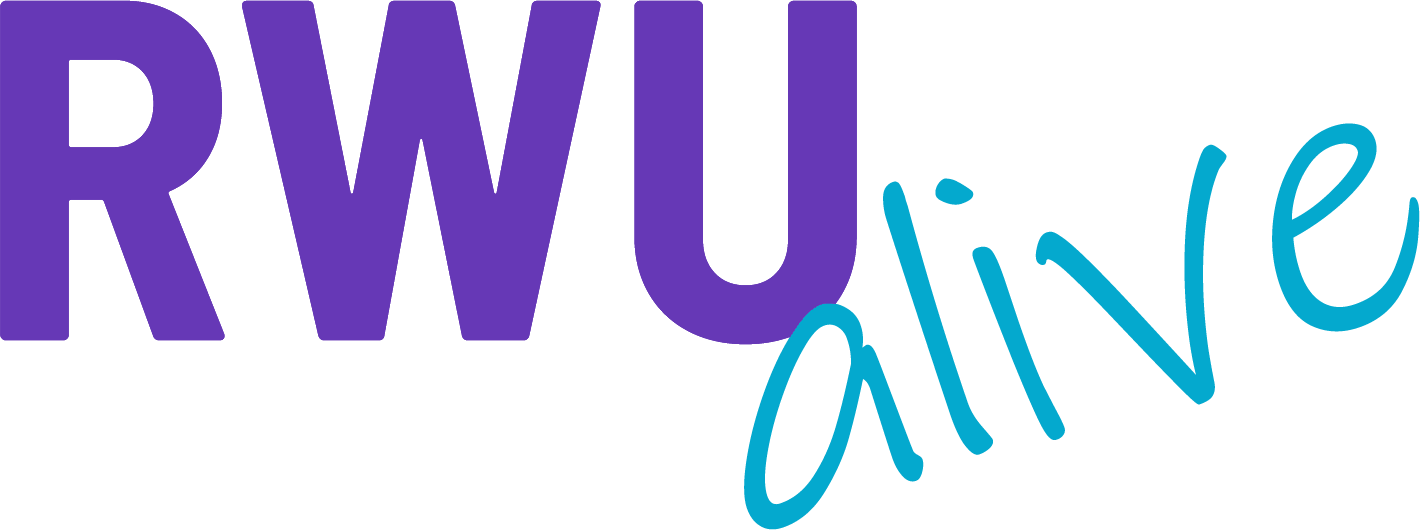
RWUalive was funded by the Baden-Württemberg Ministry of Science, Research and the Arts and was defined by the "Program to mitigate pandemic-related learning backlogs". 325,000 was available for this until mid-2023. Some components of RWUalive, such as the learning café, STEM advice and writing advice, will continue in the future.

RWU's talent scanner offers all students the opportunity for flexible and practice-oriented orientation on their inclination and suitability for study. The online trial course designed by us gives school leavers looking for guidance the opportunity to find out their general inclination for a subject independently of the university.
In a project-oriented way, pupils learn about the elements of the individual degree courses in our online trial course. Simple basics establish the link between school knowledge and academic skills. Existing gaps can be clarified and mitigated. Students become familiar with the content they can expect to study. At the same time, pupils are given the opportunity to ask personal questions about student life and its challenges.
T.E.A.-House:
We support lecturers in anchoring cross-faculty project work in their teaching.
As a central hub for project-oriented teaching, we stimulate exchange between lecturers. We process, develop and provide information about experiences and methods of project-oriented teaching. As part of the project, we have established the Didactics Center in building K. The DidacticsCenter is intended to be a meeting point for questions relating to teaching and learning.
The center houses the LearningLab (a versatile classroom), the film studio, the immersive LearningLab and coworking areas for students. The DidacticsCenter thus offers space for innovative teaching, project work and agile and creative working methods.
Talent awakener:
Project-oriented teaching in the introductory phase of studies.
- International tandems in electrical engineering: international students in their fourth semester work on a project together with German students in their third semester.
- Semester 1B in mechanical engineering: project work with external cooperation partners to increase subject identification.
- Cross-semester module linking at Faculty T through projects and portfolio work.
- Making student data usable and recording project-oriented teaching.
The projects RWUalive, Talentscanner, T.E.A.-House and Talentwecker were funded by the Baden-Württemberg Ministry of Science, Research and the Arts.

Contact & People
General contact details
| Phone | |
|---|---|
| hochschuldidaktik@rwu.de | |
| Room | H039/1 |
| On campus |
Building H (main building)
Doggenriedstrasse 70
88250 Weingarten |
| Postal address |
RWU Hochschule Ravensburg-Weingarten University of Applied Sciences University didactics P.O. Box 30 22
88216 Weingarten Germany |
Vice Rector for Didactics, Digitalization and University Communication
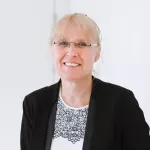
Senate Representative for University Didactics
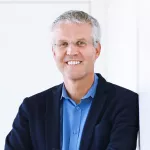
Academic staff university didactics
